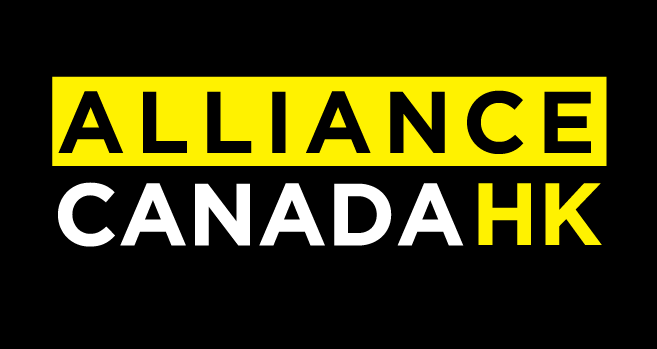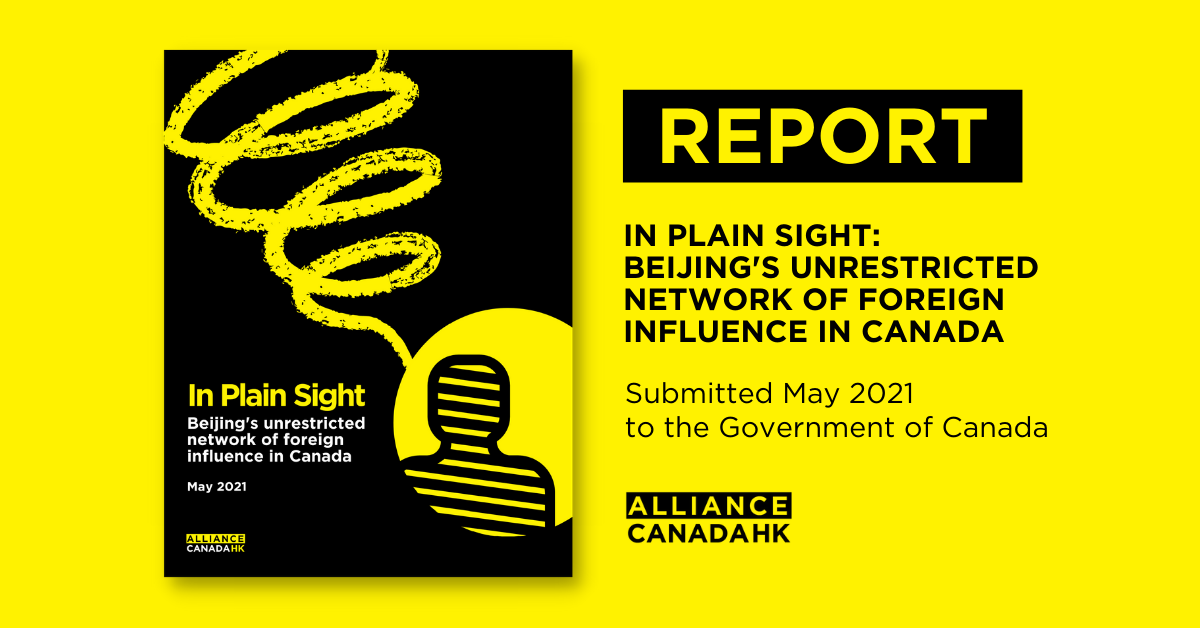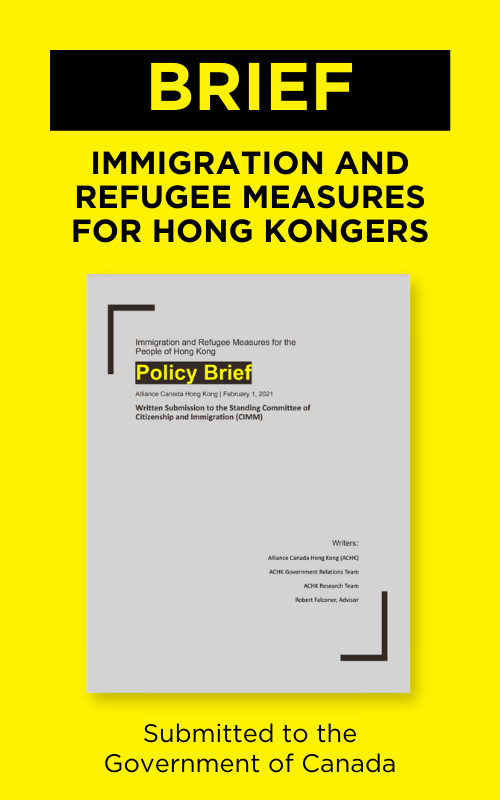On November 16, 2020, ACHK testified in front of the Standing Committee on Citizenship and Immigration about the impact of COVID-19 on Canada’s immigration system.
The full video of the day’s testimonies is available on parliament’s website here.
Transcript of Robert’s Testimony:
Thank you to the committee for inviting me. It’s an honour and a pleasure to present with Starus and Alliance Canada Hong Kong.
The topic of today actually goes along with Mr. Shory, about the idea of timeliness and flexibility when it comes to the processing of applications for refugee claimants, immigrants and others. While we do come here as a group that’s focused on Hong Kongers, the recommendations we make would be very similar, and would broadly impact the larger immigrant and refugee community.
Historically, our immigration system has not been very flexible. Since 2000, we’ve had three periods where large numbers of claims were made in Canada, and each time it has taken several years for the Immigration and Refugee Board to catch up and process those claims. This is, by the way, the same with the most recent rise in refugee numbers since about 2016, and still our system continues to try to catch up.
With the advent of COVID-19, the faults in the processing pipeline, as it were, continue to have real human impacts. I was looking at some data today, and it was quite apparent that since March 2020, about 44% of all refugee claims have been referred to the IRB for a hearing date. That’s in comparison to [Technical difficulty—Editor] per cent in the same period last year. While we can certainly understand why the effects of the COVID-19 pandemic would exacerbate the ability to process and refer refugee claims, we have to understand there are human lives in the mix here. They are unable to access work permits, attain status in Canada and access social services. They are all impacted by those wait times.
Likewise, it prevents … especially the provinces, which, rightfully so, have to … lives of refugee claimants while their claims are being processed.
In addition to this, international students have found it very difficult to make the transition from graduation into the Canadian economic immigration system. Graduates of an education program will find that … study in Canada to excel academically and to find work afterwards, through no fault of their own but only because of the economic circumstances that surround them, they will be unable to gain the points necessary to qualify for the economic immigration system.
With that, we would like to make several recommendations.
The first would be that Canada develop a five-year post-graduate work permit, similar to the Australian model that was adopted for Hong Kongers. This would allow international students in Canada, who have graduated from our system, more time to gain work experience in Canada.
The second, for those who are fleeing or who are here from countries with oppressive regimes, as in the situation in Hong Kong right now, is to provide them more safety in Canada, and if need be, access to the refugee claim system.
Finally, it would be the transition to an interim visa program. Right now, refugee claimants, students or workers who are transitioning out of one permit to another whose permit expires in the meantime…on an implied status that is … many employers … students and workers themselves. The new … offers an interim visa program that, immediately upon applying for an extension or a change of status in the visa, issues them an interim visa that would last until the government gets back to them with their new work, study or visitor permit.
In addition, … into our immigration and refugee system would pay dividends both in humanitarian … as well as to the management of our immigration and refugee system.
The … aspect will be presented by my associate, Starus. The delays in the processing of work permits, study permits, and refugee claim referrals have a real impact, causing stress, financial difficulties, and inability to access social services.
I’ll pass the time over to Starus.
Transcript of Starus’s Testimony:
Thank you for letting me speak here today.
I am an international student from Hong Kong and also a student activist for the democratic movement. Today, I am here to speak about my experience.
We all know that Hong Kong is not safe for student activists anymore. However, here in Canada, Tibetans, Uyghurs, and Hong Kong student activists are being intimidated and harassed by pro-Beijing supporters. We worry our activism is documented and it might lead to potential persecution for us and our families. I sincerely hope that the government will implement immigration and asylum measures as soon as possible. It is stressful for international students and their families to tackle COVID-19, Canada’s immigration system, and also worry about their safety at the same time.
I wanted to go back to Hong Kong before COVID, but I was wary of the potential travel restrictions. Even right now, many international students are stuck in Hong Kong.
As so many international students have already spoken up about, there is a lack of clear information about immigration rules and policies – and as migrants, when we miss deadlines, the consequences are very serious.
For example, I was required to apply for additional co-op visas to meet the requirements of a post graduate work permit, known as PGWP. This is the case for so many other international students across this country. However, the IRCC’s website is not clear. We need clear guidelines from IRCC, but also we need to ensure everyone’s immigration status will not be punished for the system’s failings during COVID.
As a Hong Kong student, I benefit from the new measure. However I want to advocate for other international students, who are also impacted by COVID, and may face deportation. I urge the committee to make the post-graduate work permit, renewable & to ensure real access to permanent residency for international students.


